Staff Inquiry: Films We Shouldn’t Forget
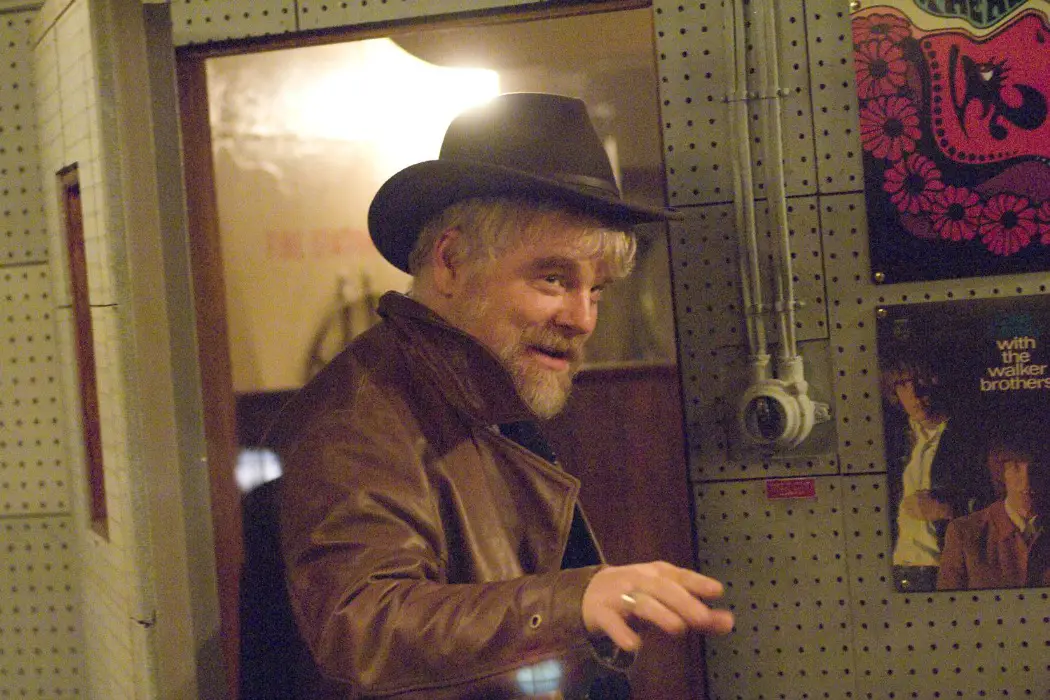
Alex is a film addict, TV aficionado, and book lover.…
Loads of quality movies come out every year, some to rousing accolades and others to barely a peep. Initial reception doesn’t correlate to long-term remembrance, though, and it’s only after several years that we find out which films will be discussed and praised ad nauseum.
The mystifying way we select this canon of great movies makes it hard to wheedle new ones onto the list, inevitably leading to the exclusion of films that shouldn’t be lost over time. In an effort to highlight some omissions, here’s our picks of movies we hope aren’t forgotten.
Stephanie Archer – Seven Psychopaths (2012)
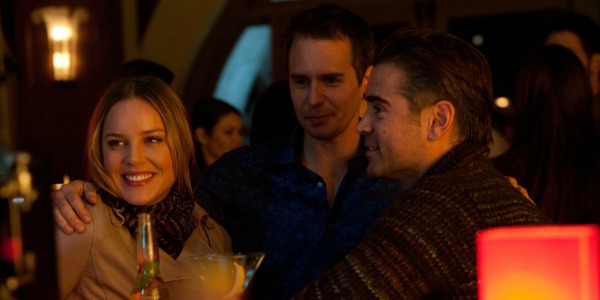
When thinking of a film that is being too easily forgotten, Seven Psychopaths is the movie that stands out strongest in my mind. While conversing in various social circles, this is a film I find myself constantly asking others if they have seen and, sadly, discovering that many have never even heard of it. Confusingly not a favorite amongst critics, this film seemed to have never received the recognition or the attention it so richly deserved. Seven Psychopaths is a film that should not be forgotten.
Written and directed by Academy Award winner Martin McDonagh, Seven Psycopaths follows the unknowingly inspirational journey of Marty (Collin Farrell) as he struggles to complete his newest screenplay, “Seven Psychopaths”. As his story unfolds itself, literally in front of his eyes, Marty crosses paths with a variety of psychopaths, each of whom is on their own personal mission of revenge and homicide – and yet all equally distracted and put off by Marty’s possible alcoholism.
This witty and hilarious script, coupled with an ingenious cast delivering brilliant performances, makes Seven Psychopaths a film that defies the run-of-the-mill crime comedies. Sam Rockwell finds his character counterpart in the eccentric role of Billy, while Woody Harrelson and Christopher Walken shine, bringing perfection to their roles as no other actor could. There is even an amazing, and somewhat random, cameo by Tom Waits as the Killer’s Killer that beautifully rounds out the film’s cast.
It is no surprise that many of the actors within this film have collaborated with writer/director Martin McDonagh on many of his previous – as well as upcoming – films. His original and unique way of crafting a story and successfully bringing it to life on film is a talent that shines through every aspect of this movie. Seven Psychopaths is truly a cinematic storytelling triumph that comes with the highest recommendation – as well as the hope that the passage of time will not let it be forgotten.
Robb Sheppard – Desperado (1995)
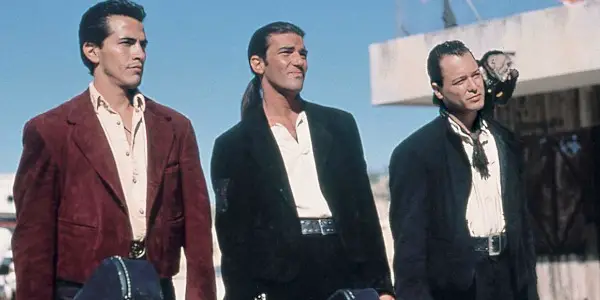
The El Mariachi “re-maquel” brought director Robert Rodriguez to a worldwide audience with an explosive statement that had Steve Buscemi, Quentin Tarantino, and a bucketload of bullets going for the hard sell. A shoot ‘em up tale of vengeance, Desperado wastes little time with convoluted narratives, instead investing in creatively choreographed villain culling as The Mariachi (Antonio Banderas) fights his way onwards and upwards towards the Big Bad, Bucho (Joaquim de Almeida).
The Rodriguez and Tarantino partnership blossomed from here, going on to produce memorable movies From Dusk Till Dawn, Grindhouse, and Sin City. It also produced Four Rooms.
Desperado shares the same Sergio Leone and John Woo influences as John Wick and employs a similar, highly-stylised, near-comedic violent streak as seen in Ben Wheatley’s Free Fire. Desperado would still be a bona fide hit if released today and deserves its encore.
Banderas was cemented as a star in his portrayal of the mariachi with a guitar case full of guns whilst the future Oscar-nominated Salma Hayek was undeniably a dame to kill for. Riding high after Pulp Fiction, Buscemi’s turn builds the mythology of The Mariachi, and Tarantino shines onscreen in what he does best: a short, sharp appearance with snappy dialogue. As for Danny Trejo? He’s Danny Trejo. And sometimes that’s all you need.
If you’ve never seen it or if it’s been a while, it’s well worth giving it another shot.
Nathan Osborne – Triangle (2009)
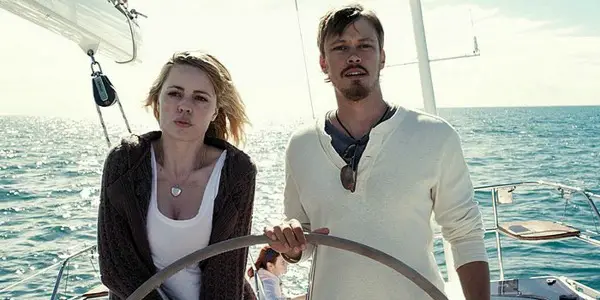
History hasn’t forgotten Triangle as much as it has completely ignored it. For those who don’t know (and you should make a concerted effort to change that), Triangle is a masterful British-Australian psychological horror-thriller that slipped under the radar upon its limited release in 2009 but has all the makings of a cult smash hit.
Written and directed by Christopher Smith and featuring a hypnotising turn from Melissa George in the central role of Jess, Triangle defies the conventions of its paltry budget and smashes genre boundaries by crafting an intensely cerebral experience that transcends limitations and has everybody who watches it speaking, theorising, and in somewhat of a trance from start to end. Attempting to deconstruct the narrative is a spoiler in itself, and the film does require thought as you absorb yourself in the world Smith conjures so expertly, with the interwoven structure possessing a compulsive rewatch factor that will have you racing to restart the experience as soon as the credits begin to roll.
Triangle’s corner of the internet – those ardently supporting and championing the little film – may be minute, and as more time passes, the less chance it has to truly connect and catch fire with wider audiences; those, like myself, will continue to do our utmost best to catapult this film into a space on the internet that will bring it more attention – and prevent it from being forgotten altogether.
Matthias van der Roest – Witness (1985)
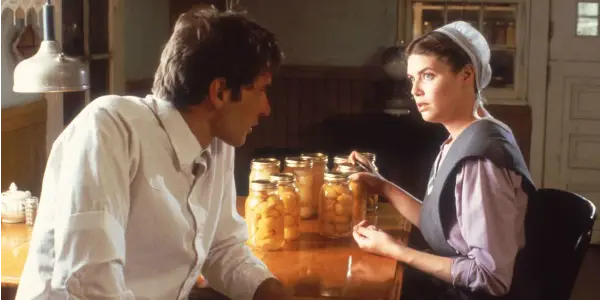
I first encountered Witness about eight years ago while working my way through numerous lists of films. Witness is a film about a cop named John Book (Harrison Ford) who is tasked with protecting Samuel (Lukas Haas), a young Amish boy who has witnessed two cops (Danny Glover and Angus MacInnes) killing a man in a train station bathroom.
As it turns out, the victim was an undercover police officer. Once Book sees Samuel’s reaction to a photo of one of the two cops, he understands the boy is in grave danger in Philadelphia. After surviving an ambush, Book decides to accompany the boy so he can protect him. However, this does mean he has to move to an Amish community in upstate Pennsylvania. During his time with the Amish, John starts to fall for the boy’s mother, Rachel (Kelly McGillis,) which causes trouble in the community as she is a recently widowed woman who is expected to stay away from men.
Witness did well upon its release, earning its star Harrison Ford his only Oscar nomination to date. Directed by world-renowned Australian director Peter Weir, whose credits include films such as Picnic at Hanging Rock, Gallipoli, The Year of Living Dangerously, Dead Poets Society, Green Card, Fearless, The Truman Show and Master and Commander: Far Side of the World, Witness is a wonderfully thoughtful film about a fish out of water with plenty of suspense to boot. Another reason this film should not be forgotten is the fact that Witness features a very young Viggo Mortensen in a small supporting role.
Linsey Satterthwaite – Children of Men (2006)
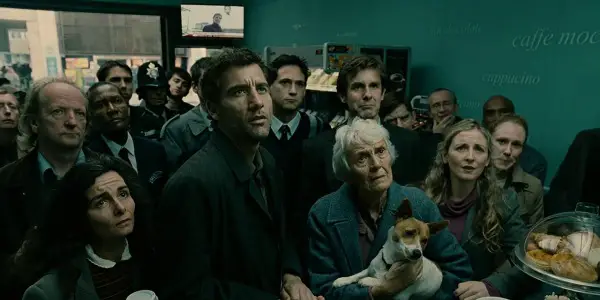
Upon its release in 2006, the odds didn’t seem to be in favour of Alfonso Cuaron’s adaptation of P D Jame’s novel. Despite receiving positive acclaim from critics, Children of Men stumbled at the box office; its dystopian themes proving too bleak for the mainstream viewing palette, in a film where one of its biggest stars dies within the first act. But it is its unwavering depiction of mankind on the verge of extinction that makes Children of Men a stunning example of modern day science fiction.
It is a film that doesn’t appear to be regarded in the same esteem as its contemporaries, and yet it is one that feels ever more prevalent in the current climate. A never better Clive Owen plays Theo, a disillusioned former activist who becomes involved in a plot to help a pregnant young women escape to sanctuary in a near-future world where infertility has caused the downfall of society.
Cuaron’s view of 2027, the year the film is set in, is rooted in a grim realism instead of futuristic sci-fi where a refugee crisis and terrorist attacks loom large within capital cities. Upon revisiting, his direction now feels like a documentary, his camera smattered with blood as Theo travels through a war torn world that has been ravaged by the absence of hope. With the success of The Handmaids Tale, whose narrative is also about the destruction of society after a fertility crisis, perhaps Children of Men will find a resurgence after its initial overlooking at the box office. It is a film that deserves to be remembered, and hopefully as an exemplary piece of fiction and not as a future that sadly could become fully realised.
Hazem Fahmy – Phantom of the Paradise (1974)
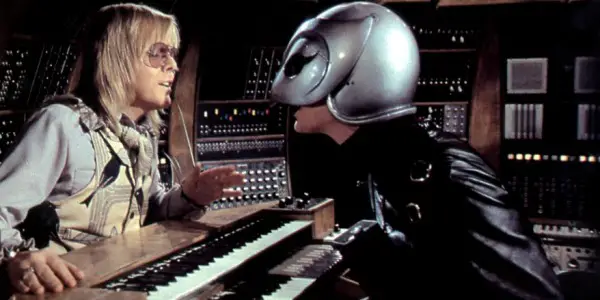
When folks think of over-the-top, highly sexualized, melodramatic rock operas from the mid-seventies, they sadly tend to only think of Jim Sharman’s The Rocky Horror Picture Show. While a fine film in its own right, the midnight movie king pales in comparison to Brian De Palma’s still tragically underrated Phantom of the Paradise. It might seem odd to describe a film of such cult stature (whose visual and musical aesthetic inspired Daft Punk) as underrated, let alone as forgotten, but as I believe it to be far superior to Rocky Horror, I find it shameful that Phantom has yet to leave any sort of mark on audiences outside of its dedicated following.
Inspired by several classic works of the Western canon, most notably The Phantom of the Opera and Faust, Phantom of the Paradise is the genuinely tragic story of Winslow Leach, a shy and timid but brilliant singer/songwriter who descends into madness and violence after he is betrayed by the legendary and mysterious music producer Swan, played by a terrifying Paul Williams. Driven by revenge, Leach vows to destroy Swan’s empire and free the young aspiring singer, Phoenix, from the greedy producer’s dastardly clutches.
Though Rocky Horror’s surreal and unabashed celebration of queer and drag culture completely earn it its status, it’s a tragedy that that success has taken such attention away from the far better written and directed Phantom. None of the latter’s weirdness feels like shock value. All the costumes, synths, and disorienting cinematography create a cohesive sense of disturbing distortion, one that very purposefully serves to comment on the violent and often literally soul-sucking nature of the business of art. Leach’s musical adaptation of Faust, the body of work that holds the film’s soundtrack together, is a haunting and ironic reminder that the devil takes many forms.
Eric Bernasek – The Chocolate War (1988)
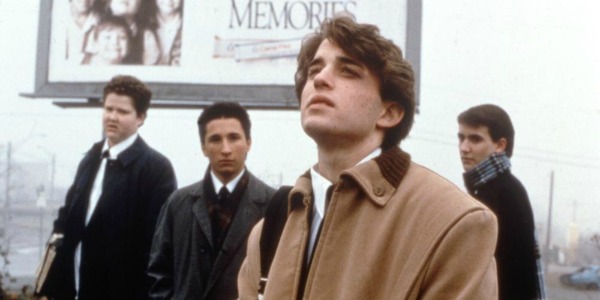
Robert Cormier was a writer of YA fiction decades before the category existed in your local bookstore. He specialized in starkly pessimistic takes on teen life that frequently show up in high school syllabi and also get banned from time to time. If you survived the U.S. public school system during the ’80s or ’90s, there’s a good chance you read I Am the Cheese, The Bumblebee Flies Anyway, or another one of the fifteen or so titles to Cormier’s name.
His 1974 novel The Chocolate War – the American Library Association’s fourth most frequently challenged book between 1990 and 2000 – made its way into not just classrooms but onto the big screen, as well. It follows the trials and travails of one Jerry Renault, a quiet student at a Catholic boys school who stumbles into a rebellion-of-one when the school’s secret society, The Vigils, decrees that he should refuse participation in the annual chocolate sale. The story frankly depicts the anguish of being yourself in the face of conformity and making a stand in the face of authority at a time in life when you probably don’t know who you are or what you want to say.
Writer/director Keith Gordon picked up Cormier’s tale in 1988, when teen film was enjoying its golden age. His take on the book changes little but the ending – which in Gordon’s hands gives its protagonist both a technical win and a crushing defeat – and his cinematic vision is dark and brooding, borrowing visually from Kubrick and Coppola. The moodiness also leans heavily on an angst-ridden soundtrack that makes great use of songs by Yaz, Kate Bush, and Peter Gabriel (whose creepy We Do What We’re Told (Milgram’s 37) is indispensable here).
The acting is disturbing in its own right, featuring a very peculiar sort of restrained melodrama from actors we probably should have seen more of like Ilan Mitchell-Smith, Jenny Wright, and Adam Baldwin. John Glover and Wallace Langham have had more success; their work here is superb, with Glover’s hysterical Brother Leon pitted against Langham’s Archie, a sneering teen provocateur positively bored with the banality of evil.
All in all, Gordon’s film is a stylistically unique and thematically compelling addition to the canon of teen film. Unfortunately, it made barely more than half of the $500,000 the studio spent, and Gordon has only directed a handful of features in the three decades since. Fortunately, for him and for us, Gordon has been much busier as a director on the small screen, credited for episodes of quite a few of your recent TV favorites, including Better Call Saul, Fargo, and The Leftovers in just the last few years. Despite the fact it was a box office flop, Keith Gordon’s adaptation of The Chocolate War deserves a much wider audience.
Emily Wheeler – The Savages (2007)
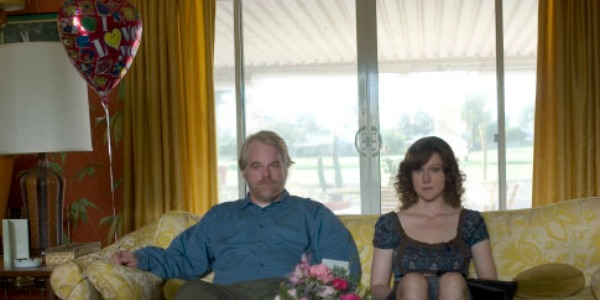
Hailed upon release and quickly chucked aside, The Savages may be too painful to remember. It’s about death, after all, and troubled families and unhealed wounds and putting forth your best effort in the face of it all. I understand wanting to forget that stuff, but writer/director Tamara Jenkins captured the messiness of watching someone die so unflinchingly in The Savages that it deserves long-term adoration.
And unflinching doesn’t just mean sad; the film is a roller coaster that gets you laughing just as often as it knocks you down with pain. Greats like Laura Linney and Philip Seymour Hoffman hit every small beat firmly, and frankly, this is the film I remember Hoffman for most fondly. He gets to do everything, like yell a searingly honest take on modern palliative care, rattle off one-liners such as “it’s like a prenup without the nup”, and hide a half-eaten cookie with comic moves that would make Chaplin proud.
Linney is just as wonderful as his wound-too-tight sister, and Philip Bosco as their father is alternatively frail and frightening. The Savages is a film where a bunch of talented people brought their A game, and that starts with Jenkins’ distinct script. It’s like she rummaged through the cinematic clichés of dementia and dying and found the kernels of truth, and that’s worth remembering.
Chris Watt – O Lucky Man! (1973)
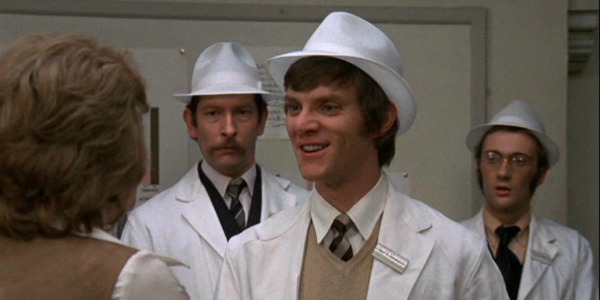
In the context of British Cinema, it’s easy to forget just how important a director Lindsay Anderson was. One of the co-founders of Free Cinema, a movement that would evolve into the British New Wave, Anderson began in kitchen sink drama before evolving his style, with the help of writer David Sherwin, into a poetic hybrid of naturalism and fantasy.
If…. (1968) may have been the definitive statement of that aesthetic, but it was the film that followed it, in 1973, that quietly remains his finest work. O Lucky Man! was based on actor Malcolm McDowell’s own experiences as a sales rep in the North of England before stardom and fame came calling, courtesy of Anderson, with the aforementioned If…. in 1968.
O Lucky Man! is a sequel of sorts. McDowell’s character retains the name of Mick Travis, if not the blood thirsty taste of anarchy. Instead, success is the drive, a man constantly grabbing for the next rung up on the ladder, naively unaware that the ladder is on fire below him.
Many of the supporting actors play multiple roles, as if life itself were nothing more than a series of encounters with the same people. It’s inventive, witty, and even musical, courtesy of Alan Price, whose interludes of song feel like a Greek chorus. Indeed, the inclusion of Price is a master stroke, just as McDowell’s grasp of his character is a joy to behold.
That the film is forgotten today is a sign of British cinema as a whole. Our films are Nation-centric, specifically aimed at audiences who recognise the landscape. O Lucky Man! has the smarts to subvert this, as much a product of its time as it is ahead of it. It’s more than a film about one man.
It’s a film about Britain.
Amanda Mazzillo – Kids in the Hall: Brain Candy (1996)
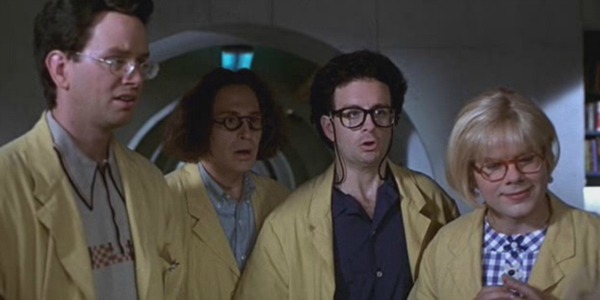
When people discuss great films, not many would bring up the Kids in the Hall film Brain Candy, but it is one of the comedies I can watch over and over without ever growing tired of its surreal charms. The film was poorly received on its initial release, but it did spark a debate between Siskel and Ebert, who disagreed completely about the film, with Siskel predicting the film would become a cult hit.
Even years after, Brain Candy is only loved by Kids in the Hall fans, while even some fans think the film was a huge step down from the series. I believe the film took familiar Kids in the Hall characters, plus some new ones, and placed them in a clever story surrounding society’s obsession with always being mindlessly happy.
The film examines balanced emotions versus a fantasy of always feeling happy. Brain Candy has plenty of memorable comedic moments to earn it a place in film history. Mark McKinney’s portrayal of Don Roritor is a pitch-perfect impression of Lorne Michaels through his inflections and facial expressions. Lorne Michaels produced the film, adding another layer of affection to this otherwise harsh character portrayal.
One moment in the film that is especially strong is Kevin McDonald playing his own father in a scene highlighting the influence depression had on his character, resulting in his desire to make a miracle antidepressant.
The film ends with society being so obsessed with maintaining a fantasy life latching on to their happiest memory, they willingly take the side effects of repeating it for eternity. One of the images shown nearing the end of the film is a parade dedicated to all the people in a coma, praising them for their commitment to a false ideal of happiness without a balance of our other much-needed emotions.
I love the darkness and surrealism of this film, as well as the similarly surreal work found in the five seasons of Kids in the Hall.
Alex Arabian – Edward Scissorhands (1990)
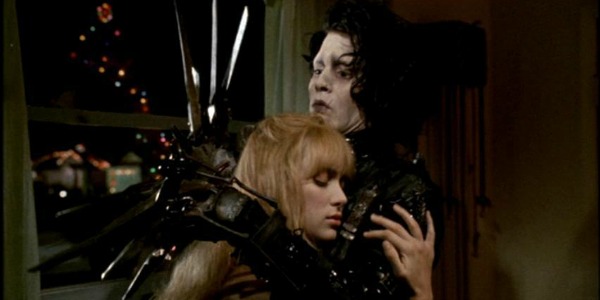
No filmmaker has a mind as imaginative as that of Tim Burton’s. His greatest artistic and cinematic achievement remains Edward Scissorhands, a classic love story disguised by its fantasy and science fiction exterior that provides intelligent social commentary about suburban America and humankind’s man-made, pun intended, prejudice against anything that is considered different.
A fan of gothic horror, Burton explored Mary Shelley’s Frankenstein’s most prominent themes in Scissorhands, updating it to modern, middle-class America. Edward (Johnny Depp) is this story’s Frankenstein’s monster, and his inventor (Vincent Price) its Dr. Frankenstein. However, Edward was created out of love, not a lust for power, creating a tender heart beneath the plot.
Traces of 1950s post-war suburban American society can be seen in the uniform, single-story modern home architecture and the neighbors’ matching old station wagons, representing the collective automation of suburban society. However, Burton’s world is sprinkled with 1980s technology and white American gentrification. This juxtaposition of time periods highlights the unchanging socio-political issues of classism and institutional segregation in modern day American suburbia.
The residents of Edward’s neighborhood represent the monsters of Scissorhands, living in selfish excess. Despite his intimidating appearance, Edward represents the innocent, childlike figure, the artistic outsider. Eventually, the nosey neighborhood’s initial interest in Edward fades, and an unconscious hatred emerges from decades of living in a suburban bubble, forcing Edward back to his lonely gothic mansion.
Not only did Scissorhands solidify Burton’s status as an auteur, but it also launched the unparalleled career of Depp, who gives one of the most anomalous performances in the history of film, portraying Edward with wonder and transparent innocence. With such little dialogue for him to work with, Depp relied almost entirely on facial expressions, displaying every emotion from astonishing wonderment to bitter anger.
It also marked the beginning of a harmonious professional relationship between Burton, Depp, and Danny Elfman. Eflman’s score for Edward Scissorhands is transcendent, expressing Burton’s vision uncannily through his characteristic choice of soprano and alto choral vocals, experimental percussion, heavenly harp scales, and crescendo- and decrescendo-infused brass section, producing an unprecedented and revolutionary sound in film composing.
Burton’s gothic fairy tale is the film that got me into cinema. I wouldn’t be a film critic if he hadn’t lived his childhood a shut-in watching old Vincent Price films. This cyclical effect is what keeps film’s Burton-esque cogs grinding. Scissorhands is a rarity of a film in which everything came together perfectly to form “movie magic”. It is the first work of art that gave me the feeling of escapism that movies of a long ago but not forgotten era in film sought to capture. To this day, I have yet to find that kind of magic in film. I’ve been chasing it ever since.
Akemi Aiello – The Boat That Rocked (Pirate Radio) (2009)
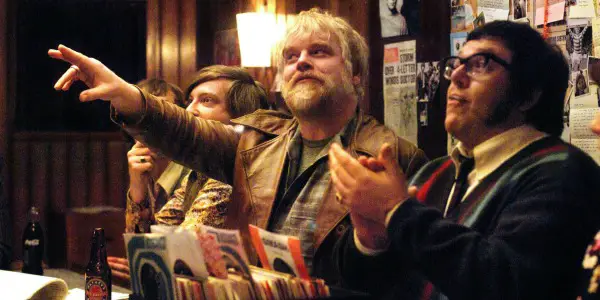
There are no shortage of movies that try to capture the essence of rock ‘n’ roll but The Boat That Rocked (known in North America as Pirate Radio) is one of the few to succeed. Perhaps its rather underdeveloped story lets it get lost into the mix, but the magic of the cast coupled with an incredible soundtrack is more than enough to stand the test of time.
Unlike a majority of music-centric films, Pirate Radio isn’t about a band. Sure, the creators of rock n roll are important, but the ones who brought the music to the people are just as important, if not more so, to the vitality of the genre. To us today, DJs are the voices that come in between overplayed songs to let the listeners know about their sponsors or radio events. But this movie reminds us of who DJs used to be, eccentric characters that didn’t give a damn about anything but music. Though this movie is about the DJs and their quest to bring rock to the radio, there is constant interaction with their listeners. They weren’t just dancing to the sounds of The Kinks, but cheering and crying as the DJs shared their vulnerabilities with their audience.
It may seem as if there’s a reliance on the actors, but Pirate Radio thrives in its ability to trust the actors to bring the energy to the movie. Their genuine passion and the captivating sounds of classic rock come together to make you feel alive and get up and dance.
Those are our pleas for remembrance. What films do you think have been undeservedly forgotten?
Does content like this matter to you?
Become a Member and support film journalism. Unlock access to all of Film Inquiry`s great articles. Join a community of like-minded readers who are passionate about cinema - get access to our private members Network, give back to independent filmmakers, and more.
Alex is a film addict, TV aficionado, and book lover. He's perfecting his cat dad energy.













